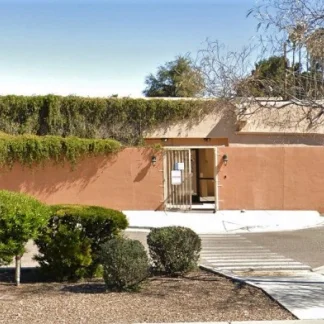Joan McNamara Center for New Directions
Joan McNamara Center for New Directions is a private rehab located in Tucson, Ar...
CODAC - Women’s Recovery Services - Las Amigas, located in Tucson, Arizona, is a women’s-only alcohol and drug treatment center. Their programs focus on providing gender-specific care.
CODAC – Women’s Recovery Services – Las Amigas uses a wide variety of interventions to support their clients. Their programs include residential and outpatient treatment.
Residential Treatment The residential program is best suited for those who need a high level of supervision and 24/7 care. Individual therapy, group therapy, family therapy, educational programming, case management, and skills classes are offered.
Outpatient Treatment The outpatient program is for those who can benefit from treatment while remaining at home. Individual therapy, group therapy, family therapy, and couple’s counseling are available.
Private Insurance CODAC – Women’s Recovery Services – Las Amigas accepts most insurance plans, including Anthem, Blue Cross Blue Shield, Cigna, Magellan, Kaiser, Amerigroup, ComPsych, United Healthcare, TRICARE, and HCSC. Out of network benefits may vary, so it is important to verify coverage with your insurance provider prior to starting treatment.
Contact us for more information: (520) 202-1716

Connect with CODAC - Women's Recovery Services - Las Amigas by calling their admissions team directly.
(520) 202-1716 Website Get DirectionsGroup therapy is any therapeutic work that happens in a group (not one-on-one). There are a number of different group therapy modalities, including support groups, experiential therapy, psycho-education, and more. Group therapy involves treatment as well as processing interaction between group members.
Trauma therapy addresses traumatic incidents from a client's past that are likely affecting their present-day experience. Trauma is often one of the primary triggers and potential causes of addiction, and can stem from child sexual abuse, domestic violence, having a parent with a mental illness, losing one or both parents at a young age, teenage or adult sexual assault, or any number of other factors. The purpose of trauma therapy is to allow a patient to process trauma and move through and past it, with the help of trained and compassionate mental health professionals.
Trauma therapy addresses traumatic incidents from a client's past that are likely affecting their present-day experience. Trauma is often one of the primary triggers and potential causes of addiction, and can stem from child sexual abuse, domestic violence, having a parent with a mental illness, losing one or both parents at a young age, teenage or adult sexual assault, or any number of other factors. The purpose of trauma therapy is to allow a patient to process trauma and move through and past it, with the help of trained and compassionate mental health professionals.
Joan McNamara Center for New Directions is a private rehab located in Tucson, Ar...
Serenidad Counseling Services is a private rehab located in Tucson, Arizona. Ser...
Carondelet Health Network – St. Mary’s Hospital is a non-profit rehab located in...
Springboard Home for Girls, located in Tucson, Arizona, provides alcohol and dru...